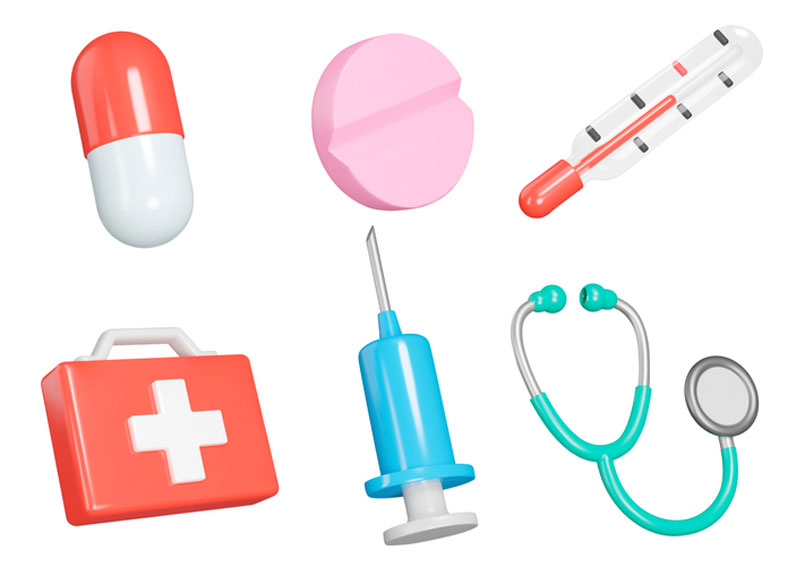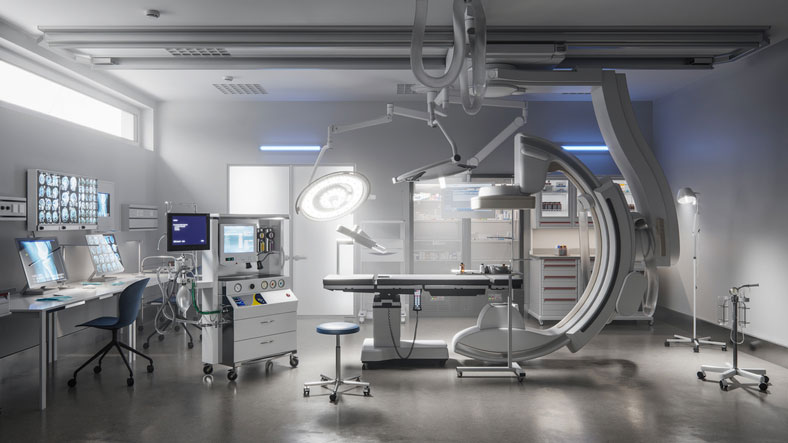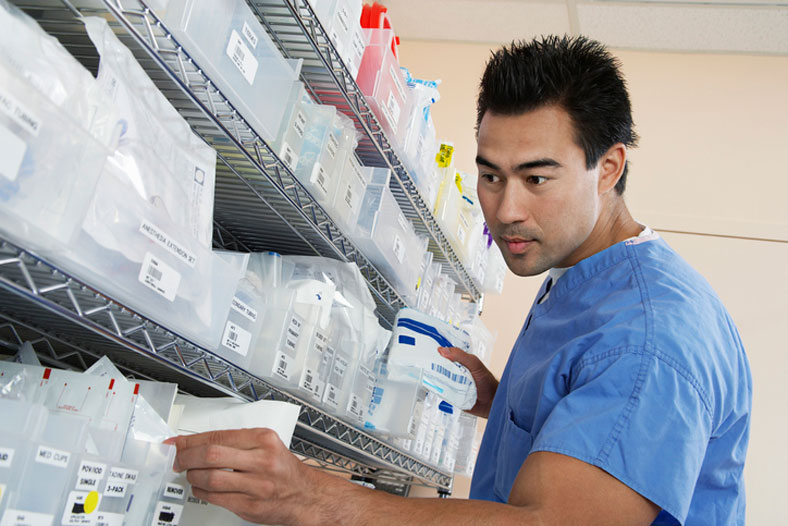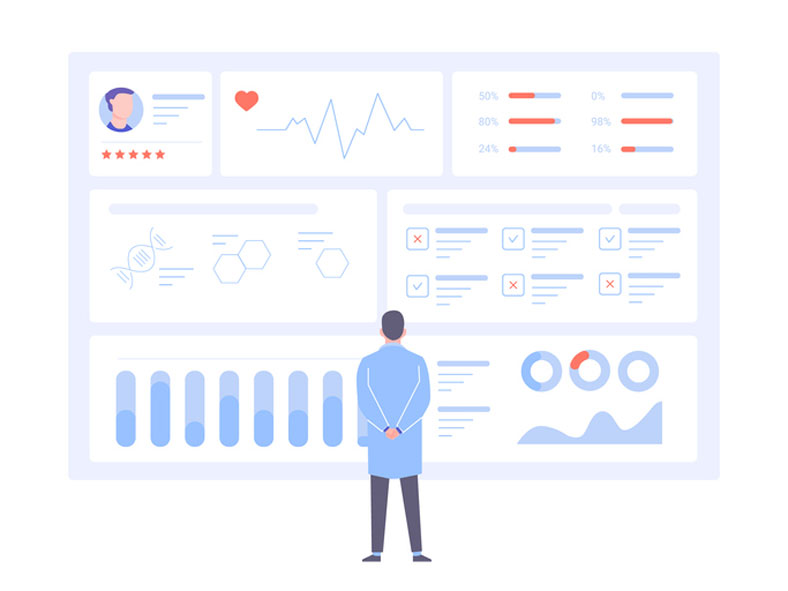Written by Scott Wilson

The healthcare industry is a juggernaut in the American economy. According to the Centers for Medicare and Medicaid Services (CMS), healthcare accounted for over 18 percent of the country’s entire Gross Domestic Product in 2021. And it’s only getting bigger… CMS projects an over five percent rate of growth through 2031, taking it to nearly 20 percent of GDP.
What is the medical supply chain?
Like every other industry, healthcare only runs because the supply chains that feed it keep moving. Hospitals and clinics need everything from basic medical supplies to medicine to heart rate monitors to high-tech diagnostic equipment. Nurses need personal protective equipment, oxygen tanks need gas, phlebotomists need needles. It’s a mountain of gear and consumables, much of it delicate or specialized, most of it sterile.
Featured Programs:Sponsored School(s)
To keep clinical professionals supplied and patients on the mend, a whole network of specialized supply chain managers are at work behind the scenes. When lives are on the line, the right logistics education makes all the difference.
Supply Chain Management in Healthcare is High a Stakes Business

Managing supply chains for medical supplies comes with some built-in concerns for logistics professionals. Mistakes in this industry don’t just knock a couple basis points off the corporate stock price or disappoint kids at Christmas when their favorite toys aren’t on the shelves. You run the real risk that a mistake here will cost someone their life.
When Medical Supply Chains Fail, Even Basic Functions Like Breathing Can Be Rationed
 The COVID-19 pandemic was a wake-up call for supply chain professionals in every industry. But for clinical supply chain managers, it was a waking nightmare.
The COVID-19 pandemic was a wake-up call for supply chain professionals in every industry. But for clinical supply chain managers, it was a waking nightmare.
As waves of patients flooded hospitals in places like New York, New Orleans, and Albany, hospital supply closets were stripped bare of essentials like masks, gloves, and face shields. Even the most rudimentary stock items, like the basic cotton swab, began to run out.
By far the worst and most dangerous shortage, though, was of ventilators. As an expensive, niche product with limited, specialized uses, global production pre-COVID was only around 77,000 units per year. But in the first wave of infections, New York city alone needed an estimated 33,000 in only two months.
On top of the limited capacity, manufacturers were unable to scale up due to raw material jams in their own supply chains. Only heroic efforts by doctors to develop other treatment methods and the invocation of the Defense Production Act averted catastrophe.
As recently as July 2023, certain ventilation-related products remained on the Food and Drug Administration’s medical device shortage list.
It was an experience that a generation of medical supply chain managers will never forget. And the lessons learned will shape the field for generations to come.
So, healthcare supply chain pros are obsessive about quality and attention to detail. Whether you’re shipping life-saving drugs or tongue depressors, strict accounting is the rule.
That also flows from the industry’s status as one of the most heavily regulated in the country. Controlled substances have a strict accountability chain tied to them. Inventory must be checked, rechecked, and only released to authorized staff.
Medical supply chain managers are on the spot when it comes to ordering the right supplies, getting them in on time, and keeping them sterile and serviceable for use at a moment’s notice.
If it wasn’t already tough enough to stay in compliance with those rules and regulations and maintain peak quality standards, there’s also a constant criticality factor in play. Delays of a certain product may be just as harmful as shipping the wrong product.
Many products in the medical supply chain also have very tight tolerances and specific environmental requirements. Storage has to be secure but also sterile, and must often be maintained within specific temperature and humidity ranges.
Jobs Found Across the Industry in Medical Supply Chain Management

Healthcare industry supply chain managers find jobs on both the supply and the consumption side. They work for medical equipment manufacturers, major pharmaceutical companies, and hot new biotech startups.
You’ll also find them employed by healthcare organizations including HMOs (Health Maintenance Organization), regional medical networks, hospitals, and clinics.
Job titles in medical supply chain management can include:
- Medical Sourcing and Contract Analyst
- Product Manager
- Pharmacy Inventory Control Specialist
- Medical Logistics Specialist
- Director of Medical Supply
- Senior Manager, Supply Chain Sustainability
Their on-the-job responsibilities vary like every similar role across industries… some of them spend their days behind a desk in an office cubicle running the numbers and making phone calls. Others are out on loading docks in all conditions, checking and re-checking product packaging and contents. And still others are working on high-level procurement negotiations in meetings to keep the vital flow of medical goods coming.
Healthcare Supply Chain Management Jobs Come with Healthy Salaries

Naturally, such a broad range of different positions brings in very different SCM base salary rates. On top of the differences based on job title and responsibilities, there are going to be various factors like the type of facility or company, your education level and experience, and overall demands that play into salary levels.
Every industry has its own trends and influences on salaries, too. The Bureau of Labor Statistics (BLS) offers a snapshot of the average salaries for those positions within the industry category for Health Care and Social Assistance. That gives you a more focused idea of what professionals working in healthcare supply chain management are making.
BLS keeps tabs on several different professional roles in supply chain management. The data from 2022 for relevant job titles in medical supply chain management give you an idea what the averages are:
Logisticians - $65,950
Logisticians are the rank and file in supply chain management. They may work in analysis, inventory, warehousing, and clinical supply chain management positions.
Transportation, Storage, and Distribution Managers - $99,910
These professionals are responsible for managing the logisticians. They have greater administrative, analytical, and strategic planning responsibilities in hospitals, healthcare vendors, and clinics.
General and Operations Manager - $110,740
This is a category that falls into the larger group of Top Executives. In supply chain management, they are the most senior roles, the logistics department heads and vice presidents in procurement and other functions. While the category includes many non-SCM jobs, it’s a reasonable look at senior level salaries.
Earning the Right Qualifications for Key Roles in Supply Chain Management in Healthcare Organizations

Keeping the blood flowing in healthcare supply chains isn’t a job for anyone who hasn’t earned a relevant degree.
You’ll find degrees in supply chain management available at every level, and across the various types of specializations in the field. These programs focus on supply chain and logistics work in general; it’s left to you to put together the right kind of coursework to create a medical supply system focus.
It is, however, possible to find degrees that are focused on healthcare administration, but which offer concentrations of their own in SCM, such as a Master of Science in Healthcare Administration with a specialization in Supply Chain Management and Logistics. At the associate level, many degrees in medical technology management, like the Associate of Applied Science in Healthcare Technology Management, touch on supply chain considerations, too.
It’s also common to find post-degree SCM certificate programs that come with a medical industry focus, like a Healthcare Supply Chain and Operations Management Graduate Certificate. Certificates are fast and focused educational courses that are useful for professionals who already hold a related degree but need to deepen their expertise in a specific focus like healthcare SCM.
All these programs are available in traditional and flexible online formats.
Exploring Professional Certifications Relevant to Positions in Medical & Healthcare Supply Chain Management

If there’s one area where healthcare and supply chain management are perfectly aligned, it’s in their respect for professional certifications.
Unlike educational certificates, professional industry certifications go beyond just offering training. They also take steps to ensure that you have absorbed the information and have developed the skills to put it into practice.
There is a wide array of professional certifications available in the entire range of SCM specializations. Earning any of those will help you signal your expertise to colleagues or employers.
There are also a handful of specialized professional certifications focused on medical supply chain management. The Association for Health Care Resource & Materials Management (AHRMM) of the American Hospital Association (AHA) offers the Essentials of Health Care Supply Chain Certificate series for medical supply chain managers. These cover all the bases of SCM, but from the unique perspective of health care professionals. They include:
- Essentials of Purchasing Certificate
- Essentials of Inventory Control Certificate
- Essentials of Negotiations Certificate
- Essentials of Logistics Certificate
In this industry more than any other, employers need to know you have the right stuff for fast-paced logistics jobs. Professional certification and a college degree is a powerful combination and represents one of the best ways to show you’ve got what it takes for this high-stakes role.
2022 US Bureau of Labor Statistics salary and employment figures for Health Care and Social Assistance reflect national data, not school-specific information. Conditions in your area may vary. Data accessed August 2023.







